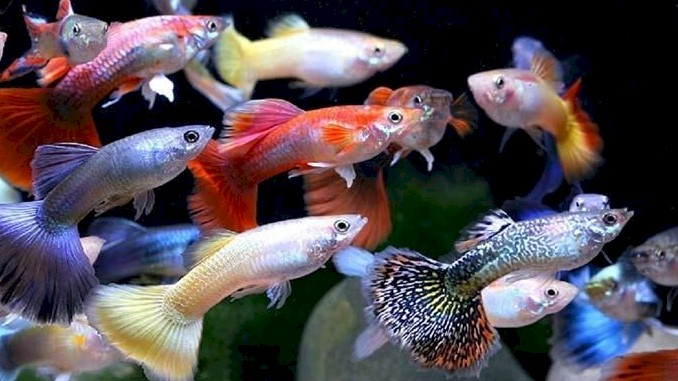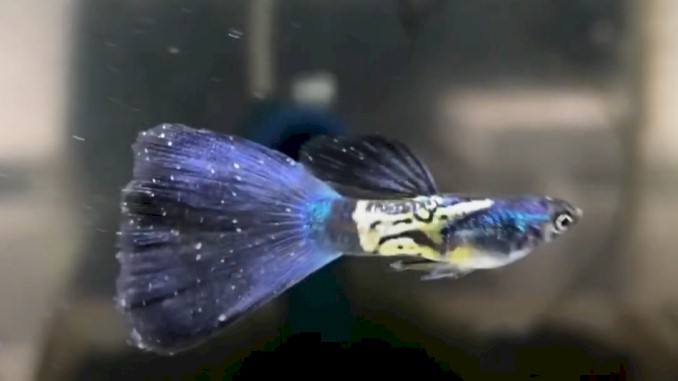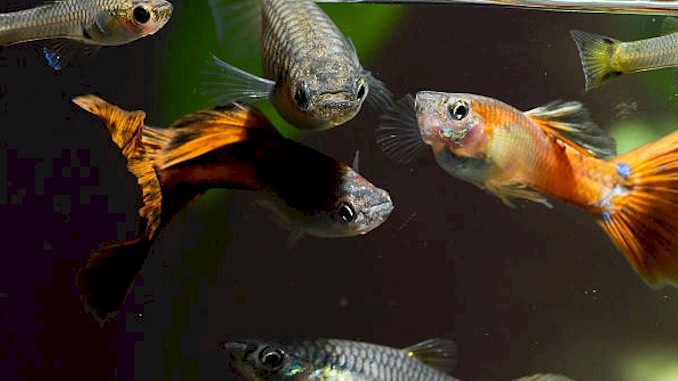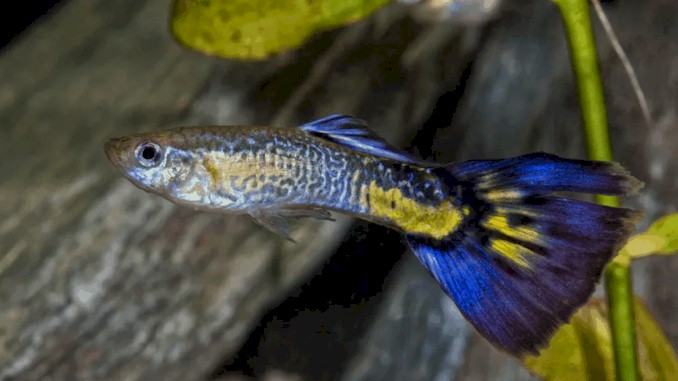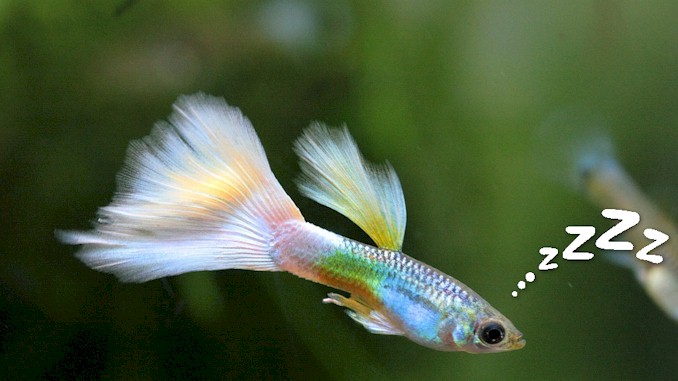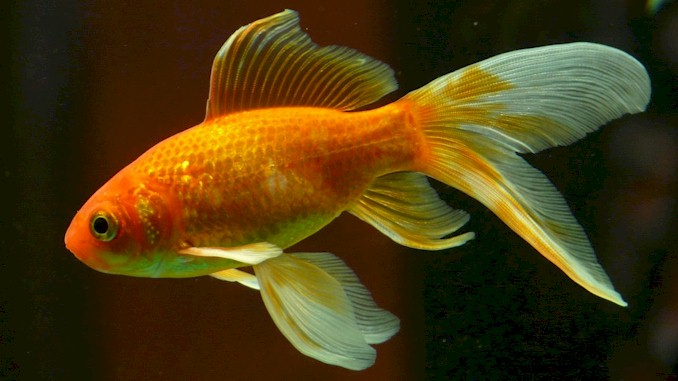Are Guppies Aggressive – A Complete Guide on Guppy Aggression and Fighting
A few months ago, I bought some guppies from a pet store. They were so colorful and cute, I couldn’t resist. I brought them home and put them in my tank with some other fish. Everything seemed fine at first, but then I noticed something strange. Some of the guppies were acting very mean to the others. They would swim fast and bump into them, or bite their tails, or chase them away from the food. I didn’t like that at all. I wanted my guppies to be happy and peaceful, not angry and violent. So I decided to do some research and find out why they were behaving this way, and what I could do to stop it. And guess what? I learned a lot of interesting things about guppies and their aggression. And I’m going to share them with you in this blog post.
Although guppies are peaceful fish, they can be aggressive. This usually occurs when they are kept in a tank that isn’t big enough, an incorrect male to female ratio, competition, or an aggressive fish.
You might be wondering, what can you do to reduce guppy aggression and make your fish happier? Well, don’t worry, I have some tips for you. In this blog post, I will explain in detail how each of the factors I mentioned affects guppy behavior, and what you can do to improve them. I will also tell you some signs of stress and illness in guppies, and how to prevent them. By the end of this post, you will have a better understanding of your guppies and how to care for them. So stay with me, and let’s dive into the world of guppies!
What Are The Signs of Guppy Aggression
Guppy aggression is not very common, but it can happen sometimes. It is important to recognize the signs of guppy aggression, so you can take action to prevent it or stop it. Here are some of the signs of guppy aggression and what they mean:
- Damaged and frayed fins: This is one of the most obvious signs that your guppies are being aggressive towards each other. It means that they are nipping at each other’s fins, which can cause injury and infection. Damaged fins can also be caused by other fish in the tank, or by diseases like fin rot.
- Fish hiding: If you notice that some of your guppies are hiding in the corners or behind plants, it could mean that they are being bullied by other guppies or fish. Guppies are normally active and social, so hiding is a sign of stress and fear.
- Guppies chasing each other: Sometimes, guppies chase each other in a playful or harmless way. But if you see one guppy constantly chasing another, or several guppies ganging up on one, it could be a sign of aggression. Chasing can be caused by dominance, competition for mating, or overcrowding.
- A dead fish: This is the worst sign of guppy aggression. It means that a guppy has been killed by another guppy or fish, either directly or indirectly. A dead fish can also attract diseases and parasites, which can affect the whole tank.
- Signs of stress: Besides hiding, there are other signs that your guppies are stressed or unhappy. These include clamped fins, loss of appetite, loss of color, breathing rapidly, darting around, or staying at the surface. Stress can weaken your guppies’ immune system and make them more prone to diseases.
If you notice any of these signs of guppy aggression in your tank, you should try to find out the cause and fix it as soon as possible. In the next sections, I will explain some of the possible causes of guppy aggression and how to stop it.
How does tank size affect guppy aggression?
Tank size is one of the most important factors that can affect guppy aggression. Guppies are active and social fish that need enough space to swim, explore, and interact with their tank mates. If the tank is too small, guppies can become stressed, territorial, and aggressive towards each other. Here are some of the ways that tank size can affect guppy aggression:
- Overcrowding: If there are too many guppies in a small tank, they will have to compete for food, space, and mates. This can lead to chasing, nipping, and fighting among guppies. Overcrowding can also cause poor water quality, which can stress your guppies and make them more prone to diseases.
- Male to female ratio: Guppies are known to breed prolifically, which means that you can end up with more guppies than you planned for. If you have too many males and not enough females in your tank, the males will become aggressive towards each other and harass the females constantly. This can cause stress and injury to your guppies. The ideal male to female ratio for guppies is 1:2 or 1:3.
- Territoriality: Male guppies are naturally territorial and will try to establish dominance over other males in the tank. They will flare their fins, display their colors, and chase or bite other males to show who is the boss. This behavior can be reduced by keeping guppies in groups of at least six, so that no single male can dominate the others. However, if the tank is too small, there will not be enough room for the males to avoid each other or establish their own territories.
To prevent or reduce guppy aggression caused by tank size, you should follow these guidelines:
- Choose the right tank size: The minimum tank size recommended for guppies is 10 gallons. This will allow enough space for a group of six guppies (two males and four females) to swim comfortably and peacefully. For every additional guppy, you should add 1-2 gallons of water.
- Use a stocking calculator: To help you determine how many guppies you can keep in your tank, you can use a stocking calculator like AQADVISOR.COM . This tool will take into account the shape and dimensions of your tank, as well as the filtration and water change frequency.
- Keep an eye on the population: Guppies can reproduce very quickly, so you should monitor the population of your tank regularly. If you notice that there are too many guppies in your tank, you should either upgrade to a larger tank or rehome some of them to another aquarium.
How does water quality affect guppy aggression?
Water quality is another crucial factor that can affect guppy aggression. Guppies are hardy fish that can tolerate a wide range of water conditions, but they still need clean and stable water to thrive. Poor water quality can cause stress, disease, and aggression in guppies. Here are some of the ways that water quality can affect guppy aggression:
- Ammonia: Ammonia is a toxic substance that is produced by fish waste, uneaten food, and decaying plants. High levels of ammonia can burn the gills and skin of guppies, causing them pain and stress. Stressed guppies are more likely to become aggressive towards each other or other fish in the tank.
- Nitrite: Nitrite is another toxic substance that is produced by the breakdown of ammonia by beneficial bacteria. High levels of nitrite can interfere with the oxygen-carrying capacity of guppy blood, causing them to suffocate and become weak. Weak guppies are more vulnerable to aggression from other fish in the tank.
- Nitrate: Nitrate is the final product of the nitrogen cycle, which is less harmful than ammonia or nitrite, but still harmful in high concentrations. High levels of nitrate can lower the immune system of guppies, making them more susceptible to diseases and parasites. Diseased or parasitized guppies can become aggressive towards other fish in the tank.
- pH: pH is a measure of how acidic or alkaline the water is. Guppies prefer a pH range of 6.8 to 7.8, which is slightly acidic to neutral. If the pH is too high or too low, it can cause stress and irritation to guppies, which can trigger aggression.
- Temperature: Temperature is another important parameter that affects guppy health and behavior. Guppies prefer a temperature range of 72°F to 82°F, which is warm and tropical. If the temperature is too high or too low, it can cause stress and metabolic problems to guppies, which can lead to aggression.
To prevent or reduce guppy aggression caused by water quality, you should follow these guidelines:
- Test the water regularly: You should use a reliable test kit to check the levels of ammonia, nitrite, nitrate, pH, and temperature in your tank at least once a week. This will help you monitor the water quality and detect any problems before they become serious.
- Perform water changes: You should perform regular water changes to remove excess waste and toxins from your tank. You should change 25% to 50% of the water every week, depending on the size and stocking level of your tank.
- Use a filter: You should use a good filter that can provide mechanical, biological, and chemical filtration for your tank. A filter will help remove solid waste, break down ammonia and nitrite, and remove odors and colors from your water.
- Use a heater: You should use a heater that can maintain a stable and suitable temperature for your guppies. A heater will prevent sudden temperature fluctuations that can stress your guppies and cause aggression.
How does food availability affect guppy aggression?
Food availability is another factor that can affect guppy aggression. Guppies are omnivorous fish that need a varied and balanced diet to stay healthy and happy. If food is scarce or inadequate, guppies can become stressed, malnourished, and aggressive towards each other. Here are some of the ways that food availability can affect guppy aggression:
- Competition: If there is not enough food for all the guppies in the tank, they will have to compete for it. This can lead to chasing, nipping, and fighting among guppies. Competition can also occur if the food is not distributed evenly or if some guppies are faster or more dominant than others.
- Nutrition: If the food is not nutritious or varied enough, it can cause health problems for guppies. Poor nutrition can weaken the immune system, reduce the color and vitality, and increase the susceptibility to diseases and parasites. Guppies that are sick or weak can become aggressive towards other fish in the tank or be targeted by aggression from others.
- Overfeeding: If there is too much food in the tank, it can also cause problems for guppies. Overfeeding can lead to obesity, digestive issues, and water pollution. Excess food can also attract unwanted pests like snails or worms, which can compete with guppies for food or harm them. Overfed guppies can also become lazy, bored, or aggressive.
To prevent or reduce guppy aggression caused by food availability, you should follow these guidelines:
- Feed the right amount: You should feed your guppies only as much as they can eat in 2-3 minutes, twice a day. Any uneaten food should be removed from the tank as soon as possible to avoid water pollution.
- Feed the right food: You should feed your guppies a high-quality flake or pellet food that is specially formulated for them. You should also supplement their diet with live, frozen, or freeze-dried foods like brine shrimp, bloodworms, or daphnia. These foods will provide your guppies with essential nutrients and vitamins that will boost their health and color.
- Feed in different spots: You should feed your guppies in different spots of the tank to ensure that everyone gets a fair share of food. You can also use a feeding ring or a divider to separate the guppies during feeding time. This will prevent dominant or fast guppies from hogging all the food and bullying others.
How does social hierarchy affect guppy aggression?
Social hierarchy is another factor that can affect guppy aggression. Guppies are social fish that form groups or schools with their own rules and ranks. The social hierarchy of guppies is mainly based on physical traits, such as size, color, and fin shape. The social hierarchy of guppies can affect their aggression in different ways, depending on their sex and rank. Here are some of the ways that social hierarchy can affect guppy aggression:
- Male dominance: Male guppies are naturally territorial and competitive, and they will try to establish dominance over other males in the group. Dominant males will display their colors, flare their fins, and chase or bite other males to show who is the boss. Dominant males will also try to mate with as many females as possible, and prevent other males from doing so. This behavior can cause stress and injury to subordinate males, as well as harassment to females.
- Female dominance: Female guppies are less aggressive than males, but they can also form a social hierarchy based on their size and condition. Larger and healthier females will be more dominant than smaller and weaker ones. Dominant females will have more access to food and mates, and they will sometimes bully or chase subordinate females. Dominant females will also prefer to mate with dominant males, which can increase their reproductive success.
- Group size: The size of the guppy group can also affect the social hierarchy and aggression. In larger groups, the social hierarchy can be more stable and complex, with multiple subgroups and ranks. In smaller groups, the social hierarchy can be more unstable and simple, with fewer subgroups and ranks. Larger groups can provide more protection and resources for guppies, but they can also increase competition and conflict. Smaller groups can provide less protection and resources for guppies, but they can also reduce competition and conflict.
To prevent or reduce guppy aggression caused by social hierarchy, you should follow these guidelines:
- Keep a balanced sex ratio: You should keep a balanced sex ratio of male to female guppies in your tank, preferably 1:2 or 1:3. This will reduce the competition and aggression among males, as well as the harassment to females. If you have too many males or too few females in your tank, you should either add more females or remove some males.
- Keep a large group: You should keep a large group of guppies in your tank, preferably at least six individuals. This will provide more social stimulation and security for your guppies, as well as more opportunities for mating. A large group will also prevent any single individual from dominating or bullying others.
- Provide hiding places: You should provide hiding places for your guppies in your tank, such as plants, rocks, or ornaments. Hiding places will allow your guppies to escape from aggression or stress, as well as to rest and recover. Hiding places will also create more territories and boundaries for your guppies, which can reduce conflict.
What guppy breeds are aggressive?
Guppies are generally peaceful and friendly fish, but some breeds may be more aggressive than others. Aggression in guppies can be influenced by their genetics, as well as their environment and conditions. Here are some of the guppy breeds that are known to be more aggressive than others:
- Endler’s livebearer: Endler’s livebearer is a close relative of the common guppy, and they can interbreed with each other. Endler’s livebearer is a small and colorful fish that is popular among aquarists. However, they can also be more aggressive than the common guppy, especially the males. Male Endler’s livebearers will often chase and nip other males, as well as females, to establish dominance and mating rights. They can also harass other fish in the tank, especially smaller or slower ones.
- Moscow guppy: Moscow guppy is a breed of guppy that originated in Russia, and they are known for their metallic blue or green coloration. Moscow guppies are also larger and stronger than most other guppy breeds, which can make them more aggressive. Male Moscow guppies will often fight with other males for territory and females, and they can also bully other fish in the tank. They can also be more prone to diseases and parasites, which can affect their behavior.
- Tiger guppy: Tiger guppy is a breed of guppy that has a distinctive striped pattern on its body and fins. Tiger guppies are also very active and energetic fish that need a lot of space and stimulation. However, they can also be more aggressive than other guppy breeds, especially when they are stressed or bored. Male tiger guppies will often chase and attack other males, as well as females, to show their dominance and attract mates. They can also be territorial and intolerant of other fish in the tank.
To prevent or reduce aggression from these guppy breeds, you should follow these guidelines:
- Choose compatible tank mates: You should choose tank mates that are compatible with these guppy breeds, such as other livebearers, tetras, rasboras, or danios. You should avoid keeping them with fish that are too small, slow, or timid, as they can become targets of aggression. You should also avoid keeping them with fish that are too large, aggressive, or predatory, as they can become victims of aggression.
- Provide enough space: You should provide enough space for these guppy breeds to swim freely and comfortably. The minimum tank size recommended for these guppy breeds is 20 gallons. For every additional fish, you should add 2-3 gallons of water.
- Maintain a balanced sex ratio: You should maintain a balanced sex ratio of male to female guppies in your tank, preferably 1:2 or 1:3. This will reduce the competition and aggression among males, as well as the harassment to females. If you have too many males or too few females in your tank, you should either add more females or remove some males.
- Provide hiding places: You should provide hiding places for these guppy breeds in your tank, such as plants, rocks, or ornaments. Hiding places will allow them to escape from aggression or stress, as well as to rest and recover. Hiding places will also create more territories and boundaries for them, which can reduce conflict.
How to tell if your guppies are stressed or sick?
Guppies are usually hardy and lively fish, but they can also become stressed or sick due to various reasons. Stress and sickness can affect their behavior, appearance, and well-being. It is important to be able to tell if your guppies are stressed or sick, so you can take action to help them recover. Here are some of the signs that your guppies are stressed or sick:
- Lethargy: If your guppies are stressed or sick, they will lose their energy and enthusiasm. They will swim slowly or not at all, and they will often stay at the bottom or the surface of the tank. They will also sleep more than usual, and they will not respond to stimuli like food or other fish.
- Loss of appetite: If your guppies are stressed or sick, they will lose their interest in food. They will not eat as much as they normally do, or they will ignore the food altogether. This can lead to weight loss and malnutrition, which can worsen their condition.
- Erratic swimming: If your guppies are stressed or sick, they will swim in an abnormal or erratic way. They may dart around the tank, bump into objects, swim in circles, or twitch their bodies. They may also gasp at the surface of the water, indicating that they have difficulty breathing.
- Discoloration: If your guppies are stressed or sick, they will lose their vibrant colors. They may become pale, dull, or faded, which can indicate stress, disease, or poor water quality. They may also develop spots, patches, or streaks of different colors on their bodies or fins, which can indicate infections or parasites.
- Disease: If your guppies are stressed or sick, they may show signs of specific diseases or conditions that affect them. Some of the common diseases that affect guppies are fin rot, ich, fungus, dropsy, velvet, and columnaris. Some of the signs of these diseases are frayed or rotting fins, white spots on the body or fins, cotton-like growths on the body or fins, swollen abdomen, gold dust on the body or fins, and white patches on the body or fins.
- Injury: If your guppies are stressed or sick, they may also suffer from injuries caused by aggression, accidents, or predators. Some of the signs of injuries are torn fins, missing scales, bite marks, scratches, wounds, or bleeding.
If you notice any of these signs in your guppies, you should try to find out the cause and treat them accordingly.
How to prevent guppy aggression and promote harmony?
Guppy aggression can be a serious problem in your aquarium, as it can cause stress, injury, or death to your fish. However, guppy aggression can also be prevented or reduced by providing a suitable environment and conditions for your fish. Here are some of the ways to prevent guppy aggression and promote harmony in your tank:
- Maintain water quality: Water quality is one of the most important factors that affect guppy health and behavior. Poor water quality can cause stress, disease, and aggression in guppies. You should test the water regularly and perform water changes to keep the water clean and stable. You should also use a filter and a heater to provide adequate filtration and temperature for your guppies.
- Maintain a balanced sex ratio: You should maintain a balanced sex ratio of male to female guppies in your tank, preferably 1:2 or 1:3. This will reduce the competition and aggression among males, as well as the harassment to females. If you have too many males or too few females in your tank, you should either add more females or remove some males.
- Provide enough space: You should provide enough space for your guppies to swim freely and comfortably. The minimum tank size recommended for guppies is 10 gallons. For every additional guppy, you should add 1-2 gallons of water. A spacious tank will prevent overcrowding and territoriality, which can lead to aggression.
- Provide hiding places: You should provide hiding places for your guppies in your tank, such as plants, rocks, or ornaments. Hiding places will allow your guppies to escape from aggression or stress, as well as to rest and recover. Hiding places will also create more territories and boundaries for your guppies, which can reduce conflict.
- Choose compatible tank mates: You should choose tank mates that are compatible with your guppies, such as other livebearers, tetras, rasboras, or danios. You should avoid keeping them with fish that are too small, slow, or timid, as they can become targets of aggression. You should also avoid keeping them with fish that are too large, aggressive, or predatory, as they can become victims of aggression.
- Feed them properly: You should feed your guppies properly and regularly to keep them healthy and happy. You should feed them only as much as they can eat in 2-3 minutes, twice a day. You should also feed them a varied and nutritious diet that includes flake, pellet, live, frozen, or freeze-dried foods. Feeding them properly will prevent hunger, malnutrition, and overfeeding, which can cause aggression.
Conclusion
As you have learned, guppies are small freshwater fish that belong to the Poeciliidae family. They are popular as aquarium pets because of their bright colors and easy care. However, guppies can also be aggressive, especially males. The main reasons that guppies show aggression are: the tank is too small, there are too many males and not enough females, there is not enough food or space, or there is a dominant or aggressive fish in the tank.
Understanding the factors behind guppy aggression empowers you to address the issue head-on. By identifying the root causes, you can implement effective solutions to restore harmony among your guppies. This blog post aims to provide you with valuable insights and actionable steps to tackle guppy aggression effectively. I’m confident that the information shared here will be of great assistance to you.

